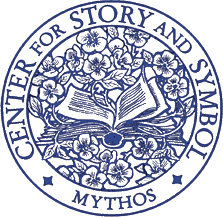
Register Articles Joseph Campbell Search
This is an archived course that is not offered at this time. The description will be updated if presented in the future.
The course explores uses of movies to increase understanding of emotional life. It is an introduction to how popular culture can reflect adult psychological challenges. The plots and characters in films reflect a broad range of human concerns and difficulties. The day will include a symbolic analysis of Black Panther as an initiatory adventure.
The training focuses on detecting psychological themes in cinema - and how to use examples from movies in discussions of personal issues. Examples illustrate the value of modeling actions on those of significant fictional characters such as seekers, mentors and allies. Discussion points out parallels between dreamwork and cinematherapy.
The focus of this course is not entirely on helping others. Even those who have done extensive inner study will deal with challenges such as life stage transitions. By projecting our issues onto fictional dramas, we are able to externalize our internal process briefly. It is clear we are not alone in experiencing the issues depicted on screen. Everyone needs to reconnect with unfelt dimensions, especially in stressful times. This form of psychological reflection helps in clarifying options, and embracing internal beauty.
Discern how character interctions can illustrate the class of inner agendas.
Assess which movies might be useful in mirroring psychological experiences.
Detect parallels between transformation in films and the work of identity formation.
Identify how plot dynamics reveal personal developmental tasks.
Demonstrate how discussion of symbolism in movies can aid psychological awareness.
Explain the use of dream analysis methods to draw insights from films.
The following CE credits are available:
Psychology, LMFT, LCSW, LPCC, Ed Psych, NBCC : 6 CE hours
Nursing : 7 hours

Select a seminar from the Current Course Offerings
Register online or call the Center at 805-687-7171

Zoom link goes live at 9:30 a.m., California time - Seminar 10 a.m. to 5 p.m.
- The cinema narrative as window to the unconscious
- Gaining distance to reflect on pressing problems
- How adult psychological challenges are presented in movie plots
- Tapping resilience by identification with characters
- Using films like dreams - as mirrors of adult issues
Hauke, Christopher & Ian Alister (2001) Jung & Film: Post Jungian Takes on the Moving Image. New York: Brunner/Mazel
Hesley, John W. and Hesley, Jan G. (1998) Rent Two Films and Let's Talk in the Morning: Using Popular Movies in Psychotherapy. New York: John Wiley & Sons
Hollis, James (2020) Living Between Worlds: Finding Personal Resilience in Changing Times. Louisville CO: Sounds True
Hollis, James (1996) Swamplands of the Soul: New Life in Dismal Places. Toronto: Inner City Books
Le Grice, Keiron. (2013) The Rebirth of the Hero: Mythology as a Guide to Spiritual Transformation. London: Muswell Hill Press
Solomon, Gary (2001) Reel Therapy: How Movies Inspire You to Overcome Life's Problems. New York: Lebhar-Friedman Books
Sturdevant, Cathie Glenn (1998) The Laugh & Cry Movie Guide: Using Movies to Help Yourself through Life's Changes. Larkspur, CA: Lightspheres
Vogler, Christopher (1998) The Writer's Journey: Mythic Structure for Writers. 2nd Ed. Studio City, CA: Michael Wiese Productions
Young, Jonathan (1996) Saga - Best New Writings on Mythology Vol. 1. Ashland, OR: White Cloud Press
Young, Jonathan (2000) Saga - Best New Writings on Mythology Vol. 2. Ashland, OR: White Cloud Press
Jonathan Young, PhD is a psychologist (PSY10231) with an international online practice. He teaches at the Pacifica Graduate Institute in Santa Barbara. His books and articles focus on personal mythology. Dr.Young assisted mythologist Joseph Campbell at seminars and was founding curator of the Joseph Campbell Archives and Library. He is currently featured in several documentary series on the History Channel.
Anne Bach, M.S., MFT 38891 is a specialist in uses of writing in psychotherapy. She gives presentations on creativity as inner work at major conferences, and lectures widely on psychological dimensions of expressive writing. She also appears in memoir drama performances for various theater groups, including the Marsh Stage in Berkeley. Her clinical background includes poetry therapy with seriously mentally ill patients.